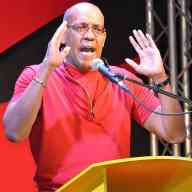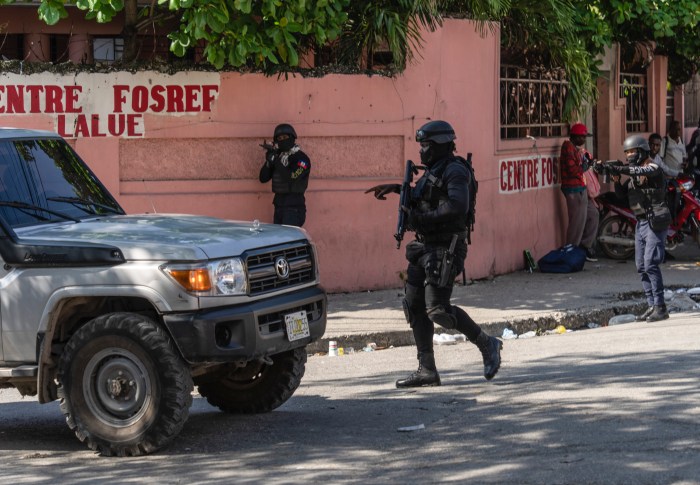On Nov. 16, Brooklyn Council Member Jumaane D. Williams, deputy leader and chair of the Committee on Housings and Buildings, passed a package of 10 bills designed to increase the safety of gas infrastructure in New York.
Two of the bills, Int. No 1101 and 1102, sponsored by Williams, representative for the 45th Council District in Brooklyn, amends the current administrative code in regard to violations and fines.
Williams said Int. No. 1101 would allow for a temporary waiver of fines for improper fuel gas-piping alterations and installations; while Int. No. 1102 would designate violations of existing law regarding gas piping systems as “immediately hazardous.”
In the past two years, New York City has experienced four major gas-related explosions, with the most severe taking place March of last year, where two people died and 22 were injured, Williams said.
In response to these explosions, he noted that the City Council passed a package of legislation with the goal of improving gas safety.
“My thoughts and prayers are with the victims, their families and the first-responders affected by the four major, gas-related explosions that took place over the last two years,” Williams said. “As chair of the Council’s Committee on Housing and Buildings, I am extremely troubled by these incidents.”
“As we learn more about how to fix the mistakes that led to those tragedies, I am increasingly confident about the City’s ability to find solutions,” he added. “In a relatively short time, we’ve seen a number of gas explosions take place in the City; many of them due to failures to report and handle gas leaks properly. “
“To ensure the well-being of New Yorkers and first responders, it’s vital we introduce legislation that will implement and enforce a system of safety procedures followed by all building owners and plumbers,” Williams continued.
The 10 bills look to improve gas safety by requiring inspections of gas piping systems, annual reports on the state of gas infrastructure in the city, and that natural gas alarms be placed in housing units.
The package also calls for building owners to notify tenants of procedures that should take place during a gas leak, according to Williams.
Int. No. 738 would create a journeyman plumber gas qualification system. It would also bar journeyman plumbers from fabricating, assembling, installing, repairing, servicing, testing or performing maintenance on fuel gas piping systems unless they have a valid gas qualification.(Sponsored by Council Member Mark D. Levine).
Int. No. 1079 would prohibit an individual from being able to “self-certify” work if it was determined by Department of Buildings (DOB) that such individual had, within the previous five years, worked on a gas piping system without a permit. DOB would also be required to make a list of such persons publicly available on its website. (Sponsored by Speaker Council Member Melissa Mark Viverito).
Int. No. 1088 would require owners of buildings with gas piping systems to have such systems periodically inspected by licensed master plumbers. (Sponsored by Council Member Rafael Espinal).
Int. No. 1090 would require owners to instruct their tenants to call 911 and their gas service providers, prior to informing such owners, when a gas leak is suspected. (Sponsored by Council Member Vanessa L. Gibson).
Int. No. 1093 would require gas service operators and owners to notify DOB within twenty-four hours when gas service is shut-off or not restored due to safety concerns. (Sponsored by Council Member Rosie Mendez).
Int. No. 1094 would require an agency or office designated by the mayor to identify a set of factors which indicate the presence of gas-related violations that pose risks to health, safety or property. The bill would also require such designated agency to submit a report to the council on using such factors to target enforcement. (Sponsored by Council Member Donovan Richards).
Int. No. 1098 would require that gas utilities provide annual reports on the location, age, condition, and material of the various parts of the gas infrastructure in the city. The bill would also require that such utilities report on work done and planned work on such infrastructure. (Sponsored by Council Member Ydanis Rodriguez).
Int. No. 1100 would require natural gas alarms to be installed, maintained, and periodically replaced in dwelling units. (Sponsored by Council Member James Vacca).
“These measures will put in place a system checks and balances that will go a long way in protecting New Yorkers,” Williams said.


























